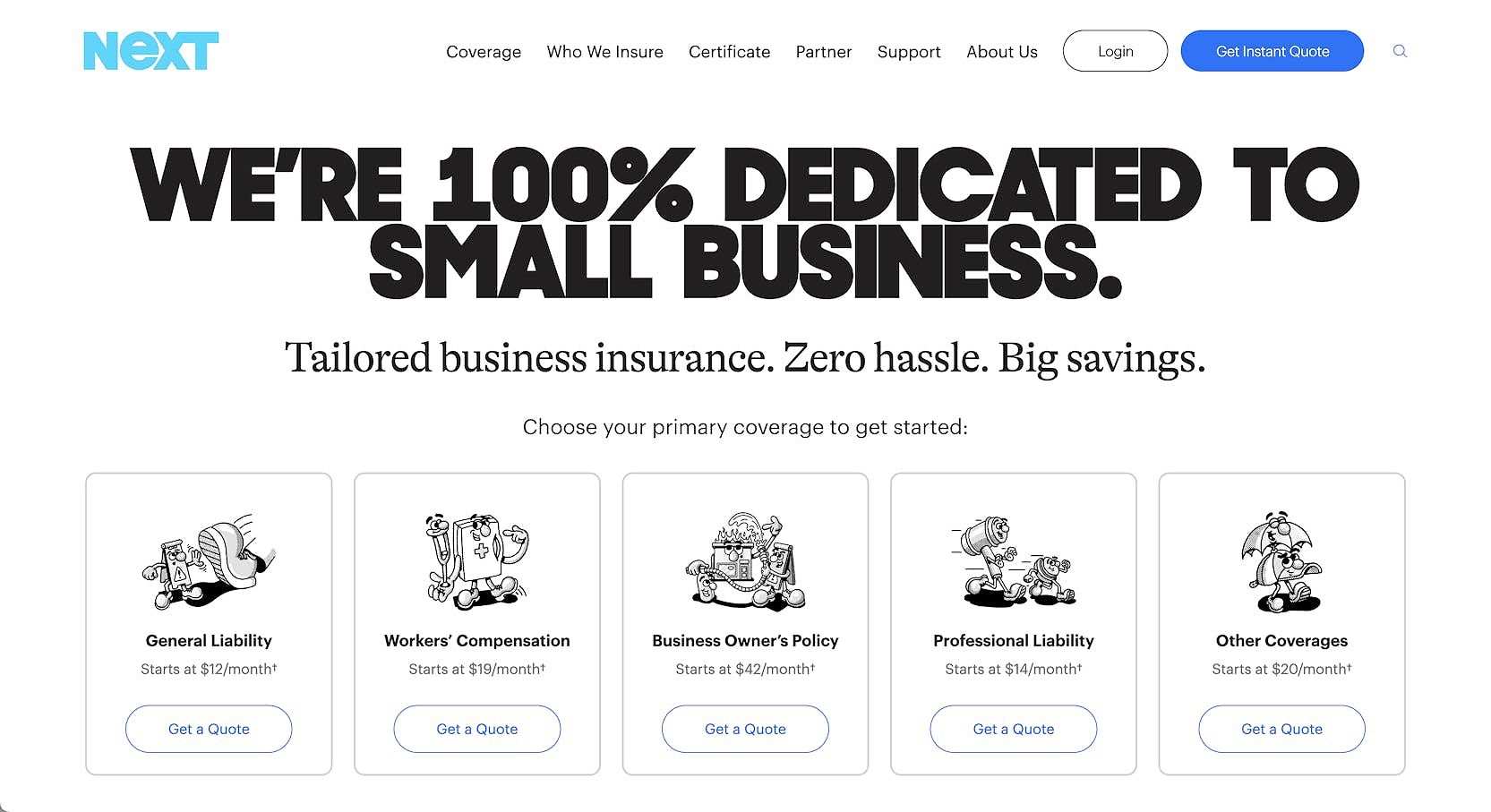The recent surge in sophisticated cyberattacks targeting e-commerce platforms highlights a critical vulnerability. While robust cybersecurity measures are essential, they are not foolproof. Insurance for online businesses provides a crucial financial safety net against the potentially devastating consequences of such breaches, minimizing financial losses and reputational damage.
As e-commerce continues to expand rapidly, with online sales projected to reach new heights, it’s essential for entrepreneurs to understand the risks they face and the importance of securing the right insurance coverage. This guide aims to equip e-commerce business owners with the knowledge they need to navigate the complexities of insurance, ensuring that they can protect their ventures effectively.
Understanding the Critical Need for Insurance in E-commerce
Why Online Businesses Can’t Afford to Skip Insurance Coverage

In today’s digital marketplace, e-commerce entrepreneurs face an unprecedented array of risks that can threaten their business’s survival. Whether you’re running a dropshipping store, an online boutique, or a digital service platform, insurance for online businesses is no longer an optional expense—it’s a fundamental protection strategy.
Many small business owners might believe that insurance is unnecessary, especially if they operate from home or have low overhead. However, the reality is that every e-commerce business, regardless of size, is susceptible to various risks, including cyberattacks, product liability claims, and business interruptions. Insurance acts as a financial safety net that protects against unexpected events that could severely impact your business.
Key Risks Facing Online Businesses in 2024
-
Cybersecurity Threats

The rise of online shopping has led to an increase in cyberattacks targeting e-commerce platforms. Data breaches can expose sensitive customer information, leading to significant financial losses and reputational damage. The average cost of a data breach can range from $15,000 to $50,000. For example, the 2017 Equifax data breach, which exposed the personal information of nearly 150 million people, cost the company over $700 million in fines, legal fees, and other expenses. This illustrates the catastrophic financial consequences that a data breach can have on a business, regardless of size. Cybersecurity insurance is a critical component of your risk management strategy.
-
Product Liability Challenges

Selling physical products exposes online businesses to potential claims if those products cause harm. For instance, if a customer suffers an injury due to a defective item, they may pursue legal action against your business. The Consumer Product Safety Commission (CPSC) receives thousands of reports of product-related injuries annually. A single product liability lawsuit can bankrupt a small business, even if the claim is ultimately unsuccessful, due to the high cost of legal representation. This highlights the critical need for comprehensive product liability insurance.
-
Business Interruption Scenarios
Business interruption insurance is vital for e-commerce startups that rely on consistent sales to maintain operations.
-
General Liability Risks
Even home-based businesses can face risks associated with accidents that occur on their premises, including injuries to visitors or damage to property. General liability insurance protects against these claims, ensuring that your business is covered in case of unforeseen incidents.
-
Professional Liability Concerns
If your e-commerce business also provides consulting or services, you could face claims related to errors or omissions in your work. Professional liability insurance safeguards your business from potential lawsuits arising from your services.
Essential Insurance Types for E-commerce Ventures
General Liability Insurance: Your Business’s First Line of Defense

General liability insurance is foundational for any e-commerce business. This policy covers claims related to bodily injury, property damage, and personal injury.
Coverage Examples
For instance, if a customer is injured while visiting your warehouse or if you accidentally damage a client’s property during a delivery, this insurance will cover legal fees and settlement costs.
Cost Considerations
Premiums generally range from $400 to $1,500 annually, depending on your business’s size, location, and risk profile.
Policy Exclusions
It’s important to note that intentional acts, professional mistakes, and specific contractual obligations may not be covered under general liability insurance.
Cybersecurity Insurance: Protecting Your Digital Assets
With increasing online sales, cybersecurity insurance has become crucial. This type of insurance is designed to help e-commerce businesses manage the financial fallout from data breaches and cyberattacks.
Coverage Examples
Policies can include coverage for data breaches, network security failures, and extortion threats. For example, if a hacker gains access to your customer database, or your website suffers a ransomware attack, this insurance will help cover the costs.
Cost Considerations
The average cost for cybersecurity insurance can vary widely based on the size of your business and the level of coverage, but expect to pay between $1,000 and $7,500 annually.
Policy Exclusions
It’s essential to read the policy carefully, as certain types of fraud or negligence may not be covered. Some argue that robust cybersecurity measures are sufficient and that insurance is an unnecessary expense. However, even the most sophisticated security systems can be breached, and the financial impact of a successful attack can be devastating, regardless of preventative measures. Insurance provides crucial financial protection against unforeseen circumstances.
Product Liability Insurance for Online Sellers
For businesses selling physical products, product liability insurance is crucial. This insurance protects against claims arising from injuries or damages caused by your products.
Coverage Examples
This insurance typically covers legal fees, settlement costs, and medical expenses related to product liability claims. If a customer suffers an injury from a defective item, or a product causes property damage, this coverage will help pay for legal expenses and any damages awarded.
Cost Considerations
Premiums can range from $500 to $2,000 per year, depending on the type of products sold and the business’s revenue.
Policy Exclusions
It’s important to be aware that products manufactured by other companies may not be covered, and claims related to the misuse of products may also be excluded. Some businesses, particularly those with very low sales volumes, might consider self-insuring for product liability. However, this approach carries significant risk, as a single substantial claim could cripple the business. Insurance provides a financial cushion against unpredictable events and allows businesses to focus on growth rather than worrying about potential liabilities.
Business Interruption Insurance: Ensuring Continuity
Business interruption insurance helps cover lost income and ongoing expenses during periods when your business cannot operate due to unforeseen circumstances, such as a natural disaster or cyberattack.
Coverage Examples
This insurance typically covers lost revenue, fixed expenses, and operating expenses during a shutdown. For instance, a flood damages your warehouse, or a cyberattack forces your website offline for weeks.
Cost Considerations
Expect to pay anywhere from $750 to $3,000 annually, depending on your business’s size and revenue.
Policy Exclusions
Keep in mind that policies may not cover certain types of disasters or incidents, so it’s crucial to understand the specific terms.
Professional Liability Insurance: Protecting Your Services
If your e-commerce business provides services or expert advice, professional liability insurance is essential.
Coverage Examples
This insurance protects against claims of negligence or failure to deliver promised services, safeguarding your business from potential lawsuits.
Cost Considerations
Premiums can range from $500 to $2,500 annually, based on the type of services offered and the size of your business.
Policy Exclusions
Be aware that intentional wrongdoing and certain types of fraud may not be covered under this policy.
Selecting the Right Insurance Provider
Comparing Top E-commerce Insurance Options

When searching for the best insurance for online businesses, consider the following reputable providers:
-
NEXT Insurance
NEXT Insurance specializes in small business coverage with tailored policies for e-commerce entrepreneurs. They offer a quick online quote process with flexible payment options and a range of coverage options, including general liability, product liability, and cyber insurance.
-
Allstate
Allstate is known for comprehensive coverage packages and strong financial stability. They provide multiple policy discount opportunities, making it easier for small business owners to find affordable insurance. Their excellent customer service and claims support are also noteworthy.
Factors to Consider When Choosing Insurance
When selecting an insurance provider, consider these essential criteria:
- Coverage Extent: Ensure the policies offered meet your specific business needs.
- Premium Affordability: Compare costs and find a provider that offers good value for the coverage you need.
- Claims Processing Efficiency: Research customer reviews to understand how quickly and efficiently claims are handled.
- Customer Support Quality: Look for insurers with strong reputations for customer service and support.
Emerging Trends in E-commerce Insurance
As the e-commerce landscape evolves, so do the insurance needs of online businesses. The increasing prevalence of ransomware attacks is driving the growth of cyber insurance policies that specifically cover ransomware extortion demands.
Furthermore, the expansion of e-commerce into new markets, such as the metaverse, is creating new insurance needs and challenges for businesses operating in these spaces. Insurtech companies are leveraging AI and big data to offer more customized and affordable insurance solutions for e-commerce businesses. This includes the use of predictive modeling to assess risk and provide tailored premiums.
Understanding E-commerce Insurance Costs
Factors Influencing Insurance Premiums
Understanding e-commerce insurance costs is vital for budgeting effectively. Several factors influence the premiums you might pay:
- Business Revenue: Higher revenues typically lead to higher premiums, as the potential for claims increases with the size of the business.
- Number of Employees: More employees generally mean higher workers’ compensation and liability insurance costs.
- Type of Products: Businesses selling high-risk products may face higher premiums compared to those selling low-risk items.
- Location: The geographical location of your business can affect insurance costs due to varying risks associated with natural disasters, crime rates, and state regulations.
- Risk Profile: Your business’s overall risk profile, including previous claims history, can significantly impact your insurance costs.
Finding Affordable Insurance for Online Businesses
For many e-commerce entrepreneurs, budget constraints can make it challenging to secure adequate coverage. However, there are strategies to find affordable insurance:
- Bundling Policies: Many insurers offer discounts when you bundle multiple policies together, such as general liability and property insurance.
- Implementing Security Measures: Strengthening your cybersecurity protocols can lead to lower premiums for cybersecurity insurance.
- Maintaining a Strong Safety Record: Businesses with fewer claims and a solid safety record often receive better rates.
Unique Considerations for Different E-commerce Models
Specific Insurance Needs for Amazon Sellers
If you sell products on Amazon, there are specific insurance needs to consider:
- Product Liability Insurance: Essential for protecting against claims related to product defects.
- Shipping Insurance: Coverage for lost or damaged inventory during shipping is critical, especially for FBA (Fulfillment by Amazon) sellers.
- Marketplace Risks: Understand the unique risks associated with selling on Amazon, including compliance with their insurance requirements.
Dropshipping Business Insurance
Dropshipping businesses face unique challenges that necessitate specialized insurance coverage:
- Product Liability: Protect against claims arising from products shipped directly from suppliers to customers.
- Supply Chain Disruptions: Insurance that covers delays or issues with suppliers can be beneficial.
- E-commerce Insurance: Look for comprehensive e-commerce insurance policies that cater to dropshipping models.
Insurance for Service-Based E-commerce Businesses
For e-commerce businesses offering services, such as consulting or digital marketing, professional liability insurance is essential:
- Coverage for Errors and Omissions: Protect against claims arising from mistakes or failures in service delivery.
- Client Contracts: Ensure that your insurance aligns with contractual obligations to clients.
Addressing Common Insurance Concerns
Frequently Asked Questions
Q: Does an e-commerce business really need insurance?
Absolutely. The potential financial risks far outweigh the modest investment in comprehensive coverage. Not having insurance can expose your business to significant financial liabilities that could jeopardize your future.
Q: How much does e-commerce insurance cost?
Prices vary, but most small online businesses can secure adequate coverage for $500-$2,000 annually, depending on the types of insurance needed and the size of the business.
Q: How can I lower my e-commerce insurance costs?
Consider bundling policies, implementing security measures, maintaining a strong safety record, and regularly reviewing your coverage to ensure you’re not overpaying.
Conclusion: Protecting Your Online Business Future
Protecting your online business with insurance is not just a precaution; it’s a strategic investment essential for long-term success. By understanding potential risks and selecting appropriate coverage, you can create a resilient foundation for sustainable growth.
As e-commerce continues to evolve, taking proactive steps to secure your business with the right insurance coverage is vital. Research providers, obtain multiple quotes, and secure comprehensive protection that gives you peace of mind in an unpredictable digital marketplace. Don’t let unforeseen events derail your business; secure your future with the right insurance plan today. Start comparing quotes from reputable providers like Allstate and NEXT Insurance to find the best affordable insurance for your online sales.
